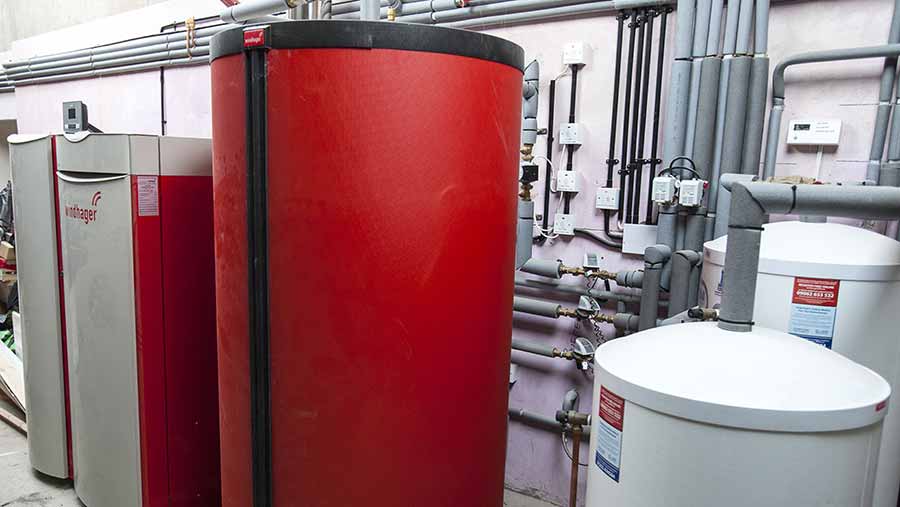Renewable Heat funding confirmed in Autumn Statement
 © Global Warming Images/REX Shutterstock
© Global Warming Images/REX Shutterstock There was finally some positive news for the renewables sector with confirmation that the government would support renewable heat generation to the tune of £1.15bn over the next five years.
This allayed fears that the Treasury-funded Renewable Heat Incentive (RHI) could be scrapped altogether as part of widespread cost savings.
The announcement in the Chancellor’s autumn statement was broadly welcomed by the sector but there was concern about the timescale for changes to the RHI and what impact proposed cost-saving reforms would mean in practice.
See also: How to comply with rule changes to keep biomass RHI payments
The government wants the scheme to deliver “better value for money” and make £700m worth of savings in the years up to 2021, but at the time of writing, the Department of Energy and Climate Change (DECC) had not confirmed how this would be achieved.
Autumn statement energy highlights
- RHI to remain and budget increased to £1.15bn in 2020-21, but scheme will be reformed to deliver “value for money”
- Spend on domestic energy innovation doubled to £500m over five years
- £300m funding for up to 200 heat networks
- £295m to improve energy efficiency of schools, hospitals and other public sector buildings
- £250m funding for nuclear research
- DECC budget cut by 22% (£220m) by 2019-20
- Energy to be excluded from the Enterprise Investment Scheme (EIS), the Seed Enterprise Investment Scheme (SEIS) and Venture Capital Trusts from 6 April 2016
- End to tax-advantaged venture capital for community energy and Social Investment Tax Relief (SITR) from 30 November 2015.
Any delays to the publication of that detail will only add to the uncertainty that has dogged investors this year.
Anaerobic Digestion & Bioresources Association chief executive Charlotte Morton welcomed the commitment to renewable heat but was concerned the extra RHI funding would not kick-in for another year, which meant uncertainty about how much support would be available for new projects in 2016.
“Given that the UK still needs 20TWh more renewable heat by 2020 to meet the government’s 12% target – with AD able to deliver a third of that – delays in biomethane deployment will jeopardise our ability to meet this target.”
The Solar Trade Association also suggested budgetary caps on RHI spending could mean the scheme being suspended to new applicants if forecast expenditure reaches the agreed budget. However, it too welcomed the continuation of RHI funding, which could benefit solar thermal, uptake of which it said had been disappointing to date due to insufficient support.
ADBA reiterated calls for biogas and biomethane to feature strongly within the RHI budget, as the technology had potential to inject an extra 6TWh per year of indigenous baseload gas into the grid by 2021, enough to heat 500,000 homes.
There was little in the autumn statement for others in the renewable sector, many of which are still waiting for Decc’s response to the Feed-in Tariff (Fits) consultation.
Latest reports suggest it is likely to be the New Year before a formal response. Any changes to the Fits scheme require 40 parliamentary days to come into force, which means it is likely to be nearer March rather than the January implementation suggested in Decc’s original consultation.
